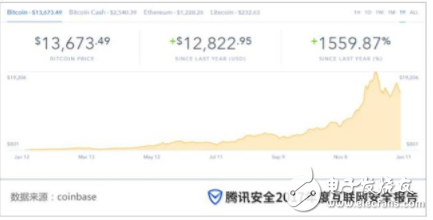Photovoltaic New Energy Magnetic Ring Inductor Photovoltaic New Energy Magnetic Ring Inductor,Common Mode Toroidal Inductors,High Frequency High Power Inductors,Three-Phase Common Mode Filter Inductor Shenzhen Sichuangge Magneto-electric Co. , Ltd , https://www.scginductor.com
Tencent Announces 2017 Internet Security Report: New Eco-construction in Crime Diversification
In today's digital age, cybercrime has become increasingly diverse, presenting both opportunities and challenges in the field of cybersecurity. As more enterprises adopt the "Internet +" model, new security threats are emerging alongside technological advancements. It has become a common understanding that various societal forces must collaborate to combine their strengths and create synergies for better cybersecurity.
In 2017, the cybersecurity landscape was marked by both opportunities and challenges. On one hand, incidents such as cyberattacks, data leaks, fraud, and pyramid schemes were on the rise, constantly reminding the public of the importance of protecting personal and sensitive information. On the other hand, the implementation of the "Cybersecurity Law" on June 1st brought national authority into the cybersecurity domain, signaling a more structured and legal approach to enforcement. In this context, Tencent Security released its "2017 Internet Security Report," covering areas like malware, black market products, financial security, and digital currencies. The report provided an in-depth analysis of the cybersecurity situation throughout the year and highlighted the progress made by industry players in promoting a safer digital ecosystem.
The diversification of cybercrime became more evident in 2017, especially with the rapid development of the "Internet +" concept. Driven by the latest technological revolution, industries such as the Internet of Things (IoT), sharing economy, mobile payments, and internet finance have seen significant growth. Traditional sectors are also embracing digital transformation, but this shift has introduced new security risks.
According to the report, cybercrime surged in 2017, with each emerging industry facing unique security threats. In the IoT space, incidents like hacked home cameras and vulnerabilities in the WAP2 security protocol raised serious concerns about data privacy. In the field of internet finance, the Qianbao.com scandal in late 2017, involving over 10 billion yuan, had a major social impact. In the sharing economy, QR code-based scams became more sophisticated, directly threatening user data and financial security. Even in traditional sectors like food and medicine, the integration of the internet led to issues of non-standardization, making regulation more complex.
Beyond these new industries, even the more traditional virus landscape became more complicated due to emerging trends. In mobile security, small, seemingly harmless vulnerabilities could combine to form significant risks. On January 9, 2018, Tencent Security Xuanwu Lab and the Chuangyu 404 Lab jointly revealed a new attack model called "Applied Clones," which allowed attackers to clone user accounts and steal funds easily.
In PC security, the rise of digital currencies in 2017 triggered a surge in ransomware and mining trojan attacks. By the end of 2017, Tencent Computer Manager discovered a mining trojan named "tlMiner," embedded in the "Jesus Survival" assistant program and spreading rapidly to over 200,000 users daily. According to the report, as cryptocurrency prices continued to climb, criminal activities related to digital currencies may increase significantly in 2018.

*Bitcoin transaction price chart*